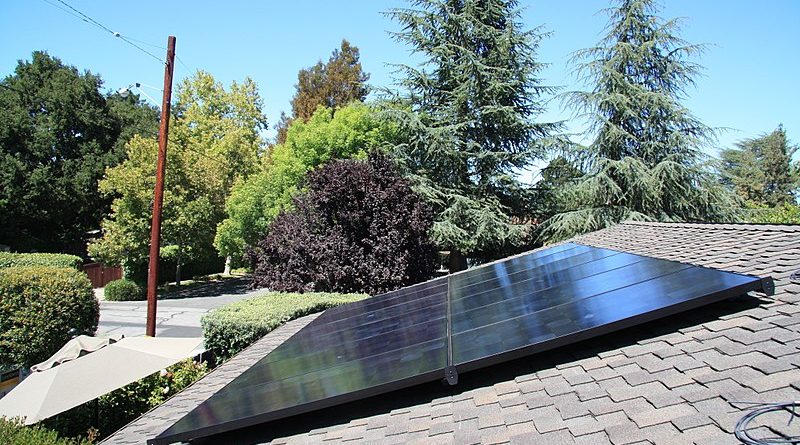Starting a journey to reduce fossil fuelled home heating
Starting a journey to reduce fossil fuelled home heating
Whether the target is to achieve net-zero carbon emissions by 2030 or 2050, reducing home fossil fuel heating is a good place to start.
In round figures 30% of household climate changing emissions are a result of heating our homes with fossil fuel.
For my home I’m investigating, but have not completed, options to provide comfortable heating, domestic hot water, and some electricity, all with a minimal use of fossil fuel. My target is to complete my exploration in the next 2 months and to complete the work before late 2021.
In the next few years I will need to change my ageing single oil tank and my inefficient, near end of life, oil fired boiler. If I were to continue with oil heating (with its current low cost fuel) the new-replacement cost would be £6,000 to £7,500 and I would still be producing global warming gases. So, are there ‘going-green’ grants available to encourage me, and at least partly cover the capital cost of changing from ‘global-heating fuel’ to non-fossil fuel (that is wind and solar generated electricity)?
YES, GOVERNMENT-BACKED GRANTS ARE AVAILABLE- and it is the time scale of grants that drives my intended programme.
The recent ‘Green Homes Grant’ currently expires in March 2021; it includes payment for fundamental energy saving works – see below.
The Renewable Heat Incentive scheme expires in March 2022; it’s monetary value is calculated to include payment over a 7-year period for heat pump installation, seemingly it can be combined with the Green Homes Grant to allow £5000 of the capital cost to be granted up-front on installation completion.
My approach is to firstly cut down wasted home energy -the ‘fundamental’ heat losses, reduced by, say, insulating and draught proofing. Only then to consider the more technical approach of renewing the heating system using electrically powered air source heat pump, perhaps supplemented with solar generated water heating and solar panel electricity. There would be no point in installing unnecessarily oversized engineering equipment if the size and cost of that heating and electrical equipment could be reduced by minimising home heat losses.
The fundamental home energy saving measures include:
- Draught proofing windows, doors and around skirting boards.
- Insulation of loft spaces and undercrofts e.g. garages beneath living spaces.
- Insulation beneath ground floor wooden floors.
- Cavity or solid wall insulation.
- Double glazed windows to replace single glazed, and perhaps, insulated doors. There is no grant for item 5 unless one or more of 1, 2, 3 and 4 are carried out.
I have completed Item 1; I need to make topping-up improvements on Item 2 (but that will be actioned after roof solar panels are installed), and insulating between my garage and living room is needed to improve my wife’s cold feet. Those items, for me will be DIY.
Item 3 – insulation beneath the ground floor requires lifting of horrible chipboard and tiled and carpeted flooring; that’s work for a contractor registered in the Green Homes scheme.
Fortunately Items 4 and 5 are completed.
I expect challenges and likely unforeseen costs even to the simple ‘fundamental’ works even if the work is carefully planned.
The main technical areas that I’m exploring to replace oil fired heating are:
- Heat Pumps -these extract heat energy from low temperature outside air and use that energy to heat rooms, and optionally provide hot water.
- Solar Hot Water Roof Panels that can heat water in a hot water storage tank/cylinder.
- Solar Photo-Voltaic Roof Panels to generate home electricity.
- Electricity Storage Battery to store any excess electricity generated by the solar panels, to either use in the home when there is little sun, or sell back to an electricity supplier.
The above four more complex items will be described in Lyn Climate Action’s Facebook pages in mid- November.
Bob
Image Credit: Catlin Wolfard (Wikimedia)
https://upload.wikimedia.org/wikipedia/commons/thumb/8/86/Zero_Carbon_Footprint_-_panoramio_%287%29.jpg/800px-Zero_Carbon_Footprint_-_panoramio_%287%29.jpg




